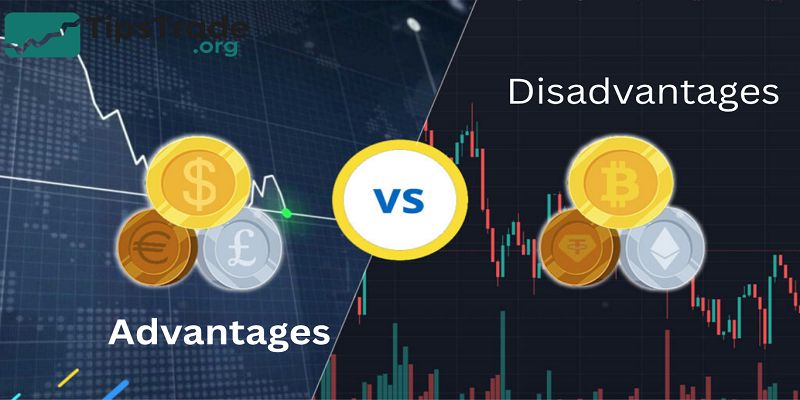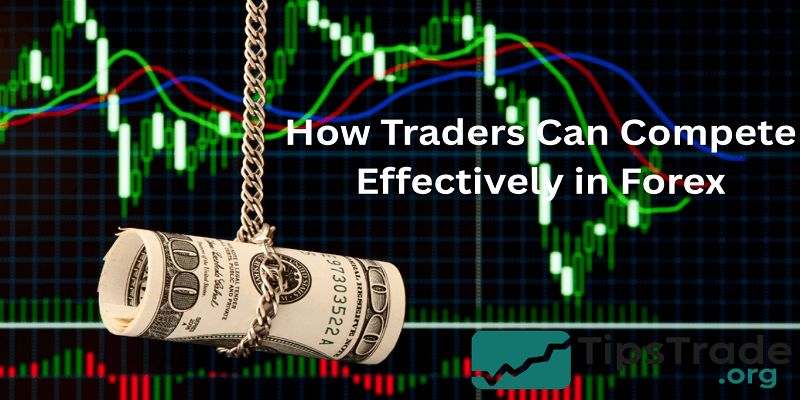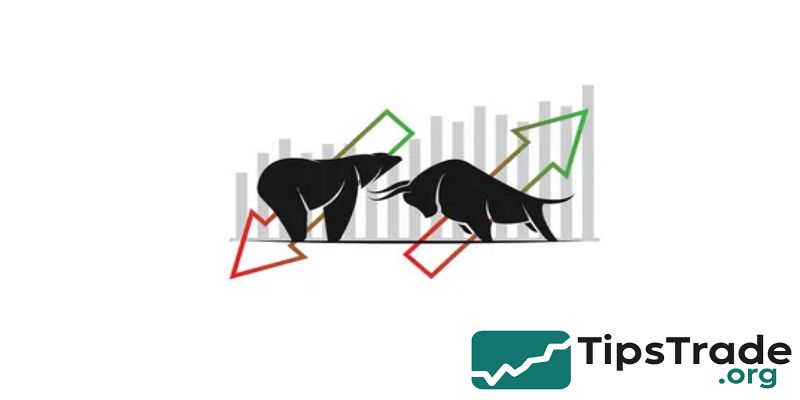Competition in forex is a defining feature of the global currency trading market, driven by numerous participants including banks, financial institutions, and individual traders. Competition in forex intensifies with advances in technology and regulation, pushing market players to innovate and improve their trading strategies and execution speeds. This article examines the competitive landscape in forex and identifies key factors that influence success in this fast-paced environment.
What is Competition in Forex?

- Competition in forex refers to the rivalry between different participants in the currency market.
- Unlike stock exchanges, which are centralized, the forex market is decentralized and global.
- This means that millions of participants—from retail traders sitting at home to massive hedge funds—are competing simultaneously to capitalize on currency price movements.
- Broker competition also plays a critical role; companies are constantly competing to offer lower spreads, faster execution, and better platforms.
- In essence, competition is not just trader versus trader, but also broker versus broker, and institutional players versus retail traders.
- Because of this complexity, forex trading is often described as one of the most competitive financial arenas in existence.
>>See more:
- What is Forex? The Complete Guide for Beginners
- Learn Forex – Beginner’s Guide to Start Trading Successfully
- List of Top forex brokers in 2025 – Most Trusted and Reliable
- Forex Capital Management Tips: The Key To Success For Professional Traders
Trader-to-Trader Competition
- Retail traders compete with each other for profitable entry and exit points, but the real challenge lies in competing with institutional traders.
- Banks and hedge funds have access to advanced algorithms, high-frequency trading systems, and vast amounts of capital, giving them an edge over small traders.
- For example, a hedge fund may use machine learning to detect micro patterns in the EUR/USD pair, executing trades in milliseconds, something an individual trader cannot replicate without institutional-grade technology.
- However, retail traders can still compete by focusing on niche strategies, building discipline, and leveraging education.
- This shows that while the competition is intense, the playing field can be navigated with the right tools.
Broker Competition in Forex
- Competition among brokers has drastically increased over the last decade, benefiting traders in many ways.
- Brokers compete primarily through spreads, commissions, leverage offerings, and technology.
- For example, an ECN broker might advertise raw spreads as low as 0.0 pips, attracting professional traders who require tight pricing.
- Meanwhile, a market maker may compete by offering higher leverage and easy account setups for beginners.
- Regulatory pressure also drives broker competition; those licensed by bodies like the FCA (UK) or CySEC (Cyprus) often highlight their trustworthiness as a key differentiator.
- This competitive environment pushes brokers to constantly innovate with features like mobile trading apps, social trading integration, and copy trading platforms.
Factors Driving Competition in Forex

- Several factors make forex highly competitive compared to other markets. First, liquidity is a major driver.
- With trillions traded daily, the forex market attracts participants from every corner of the world.
- Second, technology has transformed trading. Algorithmic trading, AI-powered strategies, and high-frequency trading systems have intensified the level of competition.
- Third, globalization has expanded participation, allowing retail traders from emerging markets to join alongside Wall Street banks.
- Lastly, regulation shapes competition by creating standards and weeding out unreliable brokers.
- For instance, after the ESMA regulations in Europe reduced maximum leverage, some brokers moved their operations offshore to stay competitive, while others focused on offering better risk management tools.
- Each of these drivers collectively contributes to the fierce competition that defines the forex landscape.
Advantages and Disadvantages of Competition in Forex

Advantages
- The competitive nature of forex brings several benefits.
- Traders often enjoy tighter spreads because brokers compete aggressively for clients.
- More competition also leads to innovation in trading platforms, such as the rise of MetaTrader 5, cTrader, and mobile-first solutions.
- Additionally, competition ensures that traders have access to a wide range of educational resources, demo accounts, and analysis tools.
- From a trader’s perspective, this means more opportunities to choose brokers and strategies that suit their style.
- For example, a disciplined scalper benefits directly from broker competition on spreads, while a swing trader enjoys innovative charting tools that come from technological competition.
Disadvantages
- On the flip side, competition can create challenges.
- The forex market is saturated with brokers, making it difficult for beginners to identify trustworthy companies.
- Intense trader-to-trader competition also means that many retail traders lose money, particularly those without a disciplined approach.
- According to data from ESMA, approximately 70–80% of retail forex traders lose money, which highlights the harsh reality of competing against institutions.
- Psychological stress is another disadvantage; constantly competing in a high-stakes environment can lead to burnout or poor decision-making.
- In this sense, while competition drives growth and opportunity, it also raises the barriers to consistent success.
How Traders Can Compete Effectively in Forex

- For traders, surviving in a competitive market requires both strategy and mindset.
- Education is the first key—understanding fundamental and technical analysis gives traders an edge.
- Risk management is another competitive advantage; traders who protect their capital can outlast those who gamble.
- Using technology wisely, such as Expert Advisors (EAs) or copy trading, can help traders compete with institutional speed. Personal discipline, such as sticking to a trading plan, also ensures long-term competitiveness.
- For example, one trader reviewed in a ForexFactory forum shared how he moved from consistent losses to profitability by focusing strictly on risk management rules, limiting his exposure to 1% per trade.
- Stories like this highlight that even in a hyper-competitive environment, retail traders can carve out success with the right approach.
Competition Between Forex Brokers – What Traders Should Know
- Broker competition is not always transparent, which is why traders need to research carefully.
- ECN brokers connect traders directly to liquidity providers, offering competitive spreads but charging commissions.
- STP brokers act as intermediaries, while market makers may compete by offering simple platforms and bonuses but sometimes trade against their clients. Regulation plays a crucial role here.
- Licensed brokers must follow strict standards, which can be a competitive advantage in itself.
- For instance, a broker regulated by the FCA or ASIC may not offer as much leverage as an offshore broker, but its reliability makes it more competitive in terms of trust.
- Understanding these broker models allows traders to choose wisely and avoid pitfalls in such a crowded marketplace.
Real-World Examples of Forex Competition
Spread Wars (2020-2025):
- Many brokers engaged in intense competition by significantly reducing spreads on major currency pairs, sometimes approaching zero, to attract more clients. This strategy, known as “spread wars,” has been a key way brokers compete in pricing to gain market share.
- Examples of brokers offering extremely tight or fixed spreads include eToro USA, AZAforex, World Forex, and Trade Nation.
- These brokers provide transparent pricing with fixed spreads during normal trading hours, appealing to beginner and day traders looking for predictable trading costs.
- This competition has intensified to the point where some brokers offer spreads as low as 0.00001 pips on major pairs like EUR/USD, often with no commission, benefiting traders especially during volatile periods.
Social Trading Platforms:
- The rise of platforms such as eToro has disrupted traditional brokerage models by introducing social and copy trading features.
- These platforms enable retail traders to compete by copying trades of professional or institutional traders.
- Leaderboards and social networking features provide transparency and allow retail traders to access strategies previously limited to institutional investors.
- This model has increased competition by attracting a new class of traders who rely on shared knowledge and algorithmic strategies rather than solely their own trading skills.
Algorithmic Trading by Institutions:
- The competition among institutional players is increasingly technology-driven. For example, JPMorgan Chase reported that over 60% of its forex trades in 2021 were executed algorithmically.
- This shift highlights how institutions use sophisticated algorithms and high-frequency trading to compete on efficiency, speed, and precision, often gaining advantages in pricing and execution quality.
- Algorithmic trading reduces manual intervention and allows firms to scale trading operations while managing risk more effectively
The Future of Competition in Forex
- The forex market’s future will be defined by even greater competition. Artificial intelligence and machine learning are expected to dominate trading strategies, making institutional competition even tougher for retail traders.
- Stricter global regulations will reduce the number of unreliable brokers, consolidating competition among larger, regulated firms.
- At the same time, emerging markets like Africa and Southeast Asia will see an influx of retail traders, further intensifying trader-to-trader competition.
- Copy trading, AI-powered signals, and blockchain-based settlement systems are likely to be future innovations that reshape competitiveness.
- For traders, this means adapting continuously and focusing on long-term discipline rather than chasing short-term gains in a crowded market.
Conclusion
Competition in forex is both an opportunity and a challenge. On one hand, traders benefit from lower costs, innovative platforms, and access to a global market. On the other hand, they must face institutional giants, aggressive broker marketing, and psychological hurdles. To stay competitive, traders must prioritize education, adopt technology, and maintain discipline. The article above from Tipstrade.org has just provided you . We hope that you find it useful. Wishing you successful trading!
>>See more:

